TARIN KOT, Afghanistan - "You can always train more," said Sgt. 1st Class David Bergman, provost marshal for Combined Team Uruzgan. "There's no such thing as an expert in detainee operations. Every situation is different, so you have to train."
On Mar. 14, a group of Soldiers from Headquarters and Headquarters Company, 4th Battalion, 70th Armored Regiment, 170th Infantry Brigade Combat Team, completed an intensive three-day detainee-operations course at Multi-National Base Tarin Kot, Afghanistan.
The training allowed the Soldiers, who had never conducted detainee operations, to see how procedures are conducted in an actual facility in Afghanistan and certified them to manage and process a detainee if their unit ever received one, said Bergman, an Emory, Texas, native.
The Soldiers learned about the importance of cultural sensitivity, proper use of force and diligent record keeping, but the best parts of the training were the hands-on scenarios for handling violent detainees, said Sgt. Joseph L.A. Mendez, human-resource noncommissioned officer for HHC, 4th Bn., 70th Armored Regt., 170th IBCT.
After receiving instruction on safe restraining techniques, students got an opportunity to play the part of a detainee, violently refusing to leave their cell, while a team of their classmates attempted to subdue them.
"Basically your putting on their set of shoes and seeing what they're going through," said Mendez.
The scenarios gave students insight about how they would want to be treated if they were a detainee, said Spc. Lawrence B. Conklin, supply specialist for HHC, 4th Bn., 70th Armored Regt., 170th IBCT.
"Feeling the pressure of everyone trying to restrain you, getting worn out, felling the dust from the small cell get in your mouth - it just makes you think," said Conklin, a Queens, N.Y., native. "Even if you are resisting, you still want them to treat you with the dignity and respect that they're suppose to - the way we were taught."
Bergman said Soldiers from HHC, 4th Bn., 70th Armored Regt., 170th IBCT were some of the best he ever trained.
"Soldiers, in general, love to learn, but these guys far exceeded that," said Bergman. "I believe - no, I know they'll have a successful mission, and I know they'll do the right thing."
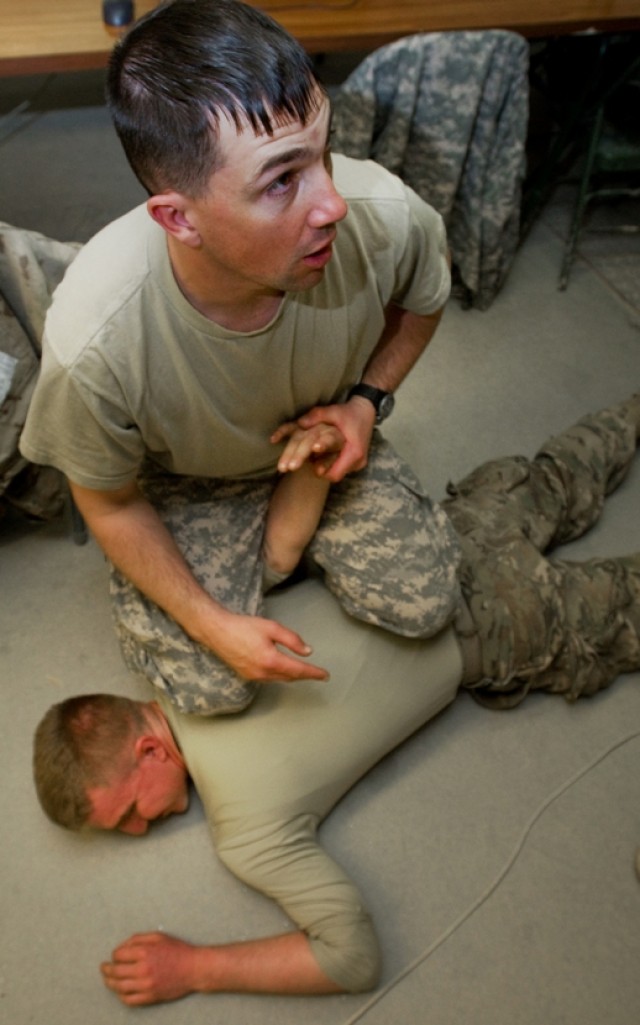
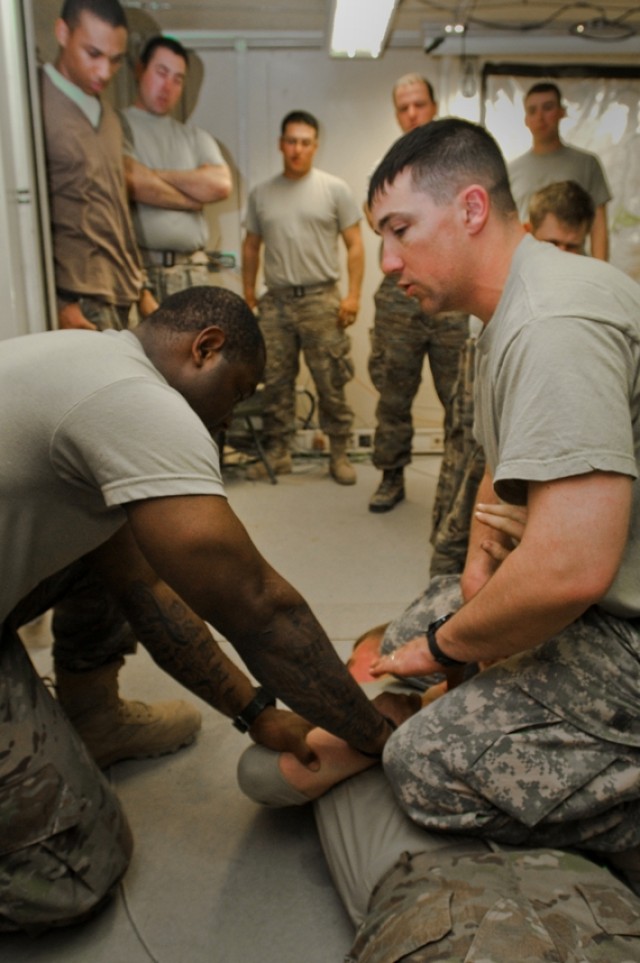
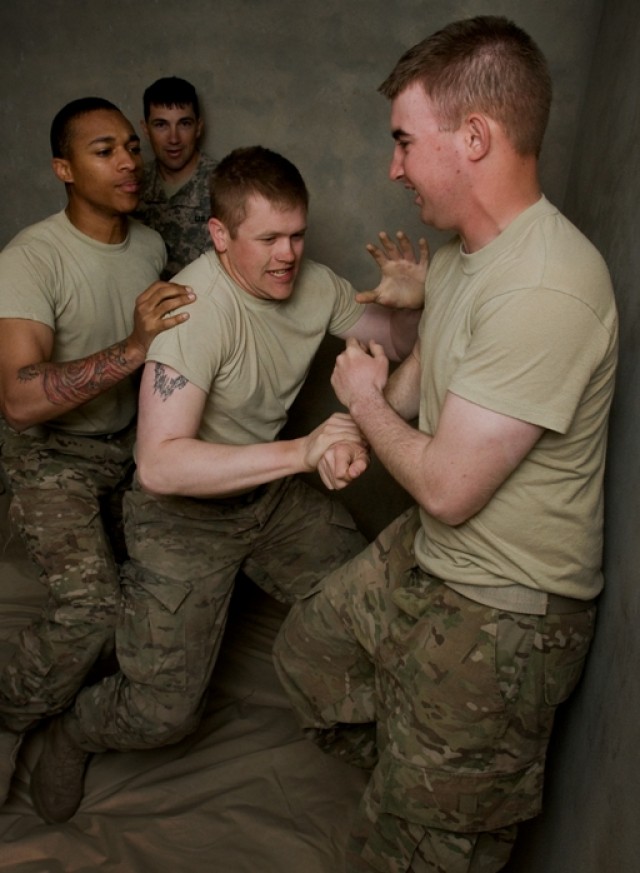
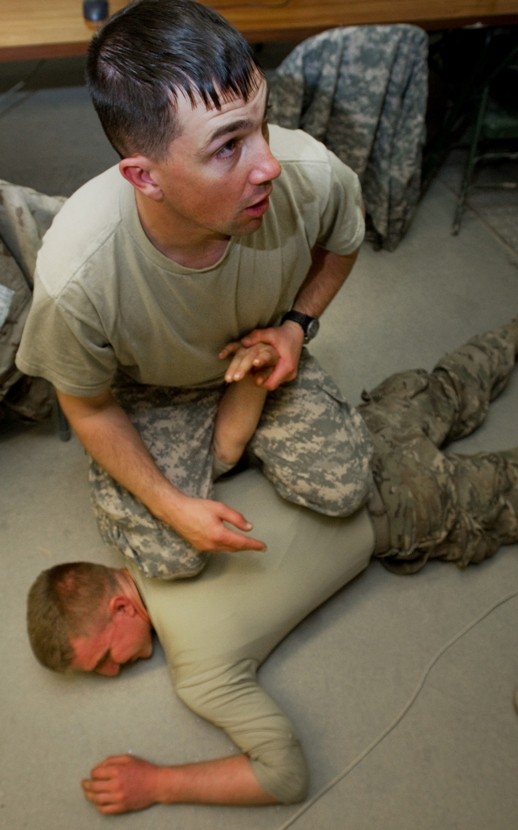
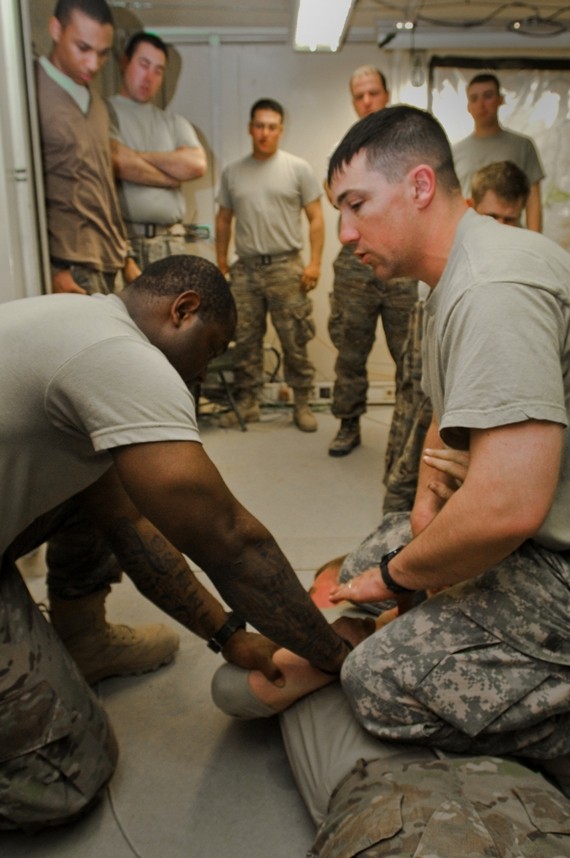
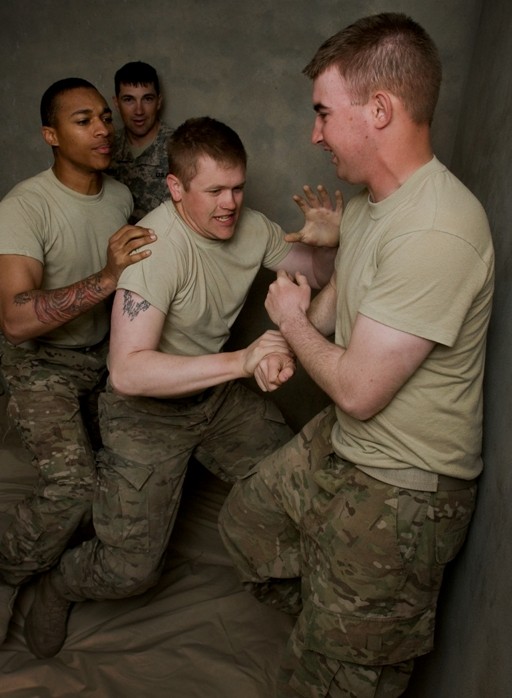
Social Sharing